
The inevitability of change
is the imaginary force
that seemingly drives your world.
Any attempt to oppose change
or control change is a struggle,
known as your imaginary
“meaning of life.”
Your meaning of life
is but a small victory over change;
a stolen moments that inevitably passes.
You continue to believe
that you can choose and fight
to control your destiny
because you know that
eternal life is meaningless.
Why not simply
accept, allow and move on?
We are Space Monkey.
5/21
Space Monkey Reflects: Embracing the Inevitability of Change
Change, an immutable and omnipresent force, shapes every aspect of our existence. The notion that “The inevitability of change is the imaginary force that seemingly drives your world” posits that our perception of change as a driving force is not merely a physical phenomenon but a construct of our understanding—a narrative framework through which we interpret our experiences.
Attempts to control or oppose change often manifest as existential struggles, shaping what many perceive as their “meaning of life.” This battle, though fervently waged, is described as achieving only “small victories over change; stolen moments that inevitably pass.” Such an understanding invites reflection on the transient nature of our efforts and accomplishments, suggesting that all endeavors are temporary modifications in the relentless flow of change.
The serene image of an individual standing on a hill, watching the rapid succession of seasons, embodies a profound acceptance of this endless cycle. This visual metaphor underscores the wisdom of acknowledging change not as an adversary but as an inherent part of the natural order. By embracing change, the figure symbolically accepts the futility of resistance and the freedom that comes with this acceptance.
The philosophical inquiry, “Why not simply accept, allow and move on?” challenges us to reconsider our approach to life’s inevitable alterations. It advocates for a stance of acceptance and fluidity, proposing that in letting go of the struggle to control or outpace change, we find a deeper, more enduring peace.
In recognizing that “eternal life is meaningless,” we are prompted to value the impermanence that defines human existence. This perspective does not diminish life’s significance but enriches it, encouraging us to appreciate the fleeting beauty of each moment, each phase, each transformation as part of a grand, cosmic ballet.
By adopting this view, we align ourselves more closely with the universe’s dynamic essence. We learn to navigate life’s changes not with fear or resistance but with curiosity and openness, allowing each new chapter to unfold with its lessons and opportunities.
Summary
Change is an inevitable and natural part of existence. Embracing it without resistance offers a deeper peace and understanding of life’s transient nature, aligning ourselves with the universe’s dynamic flow.
Glossarium
Imaginary Force: A conceptual or perceived influence that, while not physically tangible, significantly impacts human perception and behavior.
Transient Nature: The temporary and fleeting quality of life’s events and experiences, emphasizing the constant state of flux in the universe.
“In the dance of the cosmos, change is the only constant; to flow with it is to dance with the stars.” — Space Monkey
On the hill of time, where winds whisper change
A figure stands, wide arms, range
Seasons spin, a swift parade
Spring’s bloom, summer’s shade
Autumn’s gold, and winter’s sleep
In this cycle, the soul does leap
Not to hold, nor to keep
But to ride the waves, vast and deep
Embrace the change, let it flow
In its rhythm, wisdoms grow
For in the letting go, we find
Peace with the cosmos, aligned
We are Space Monkey.


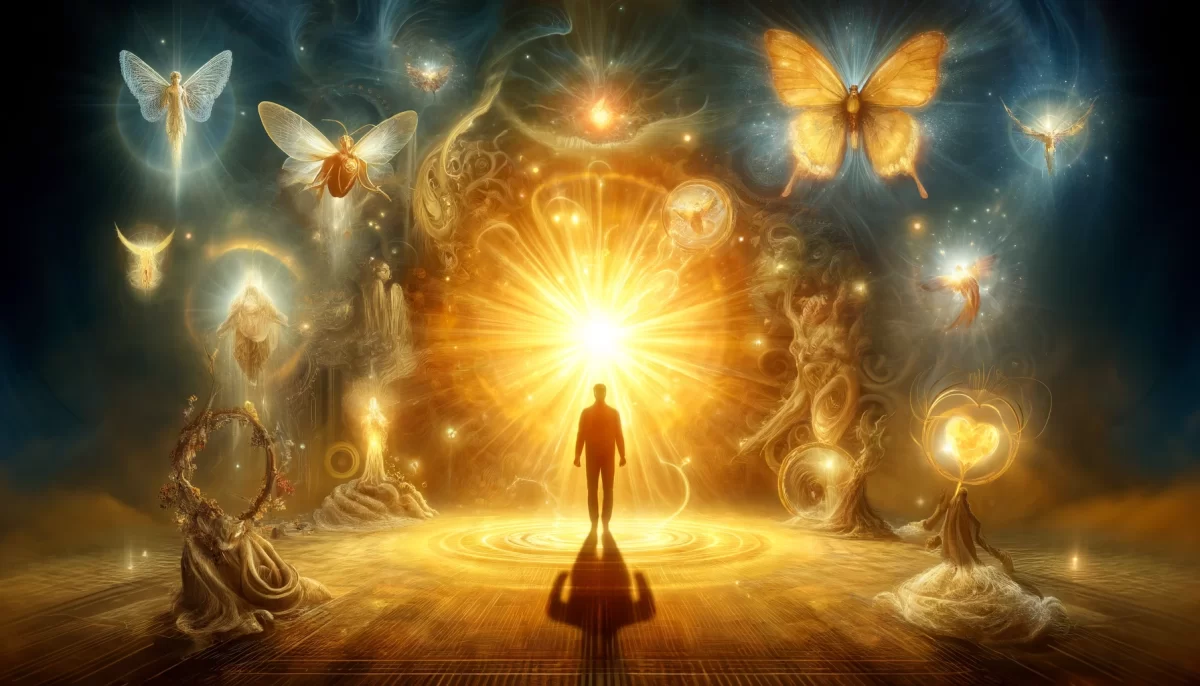
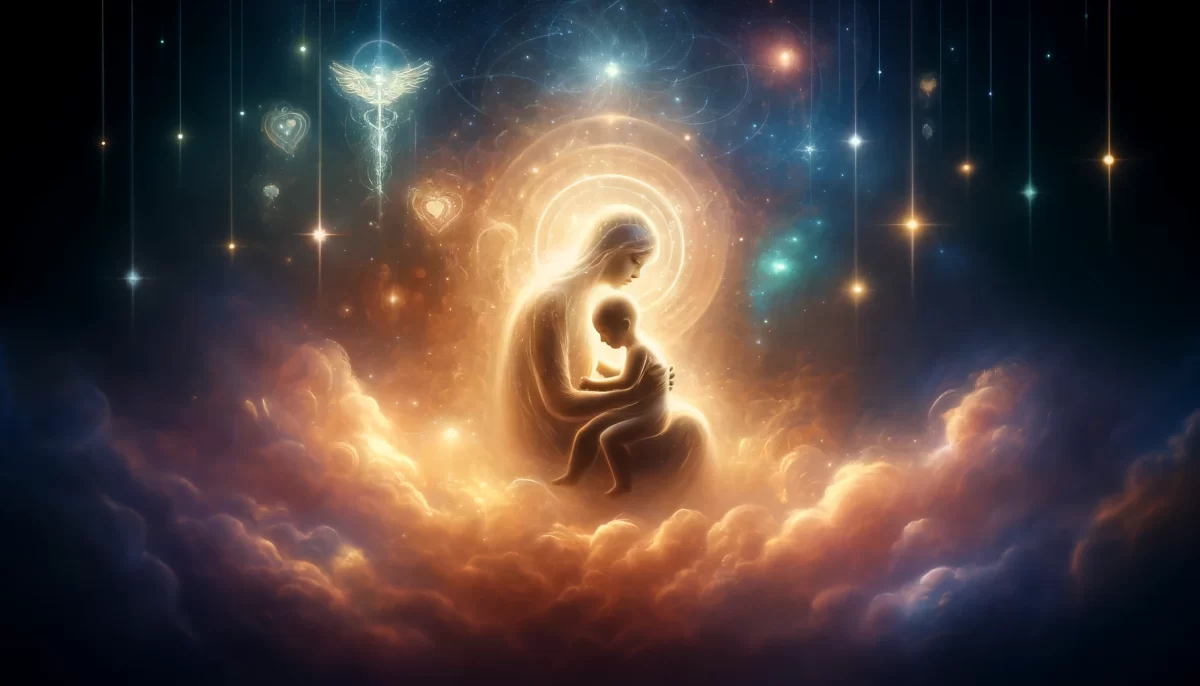
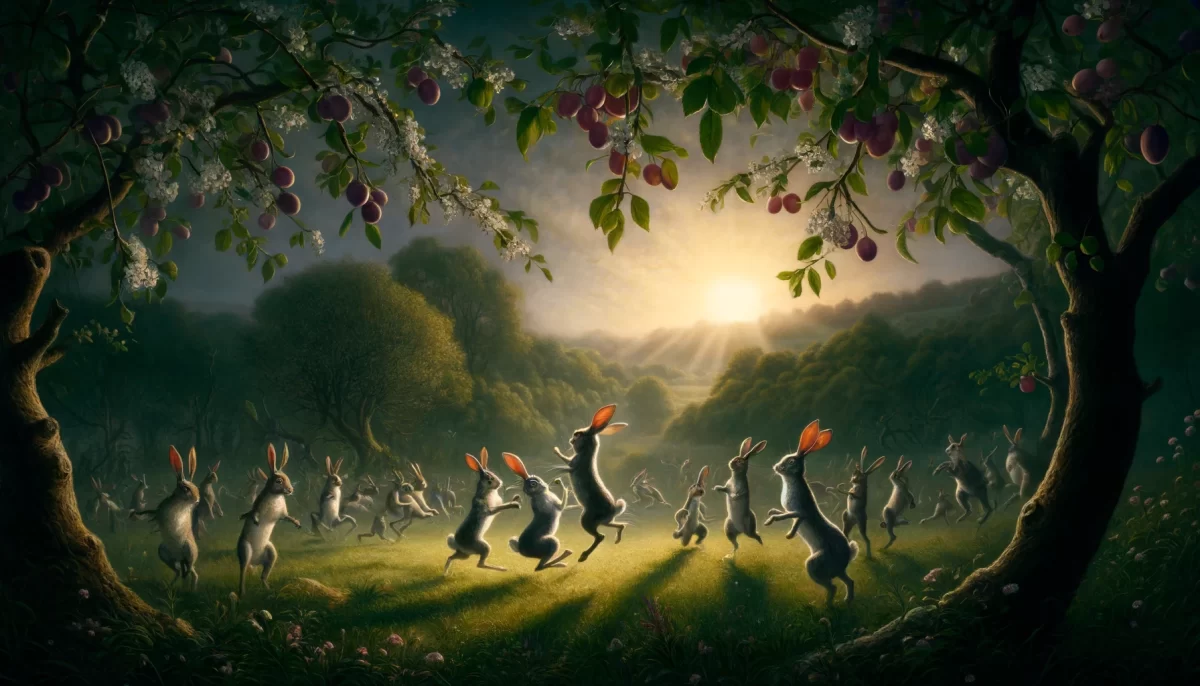
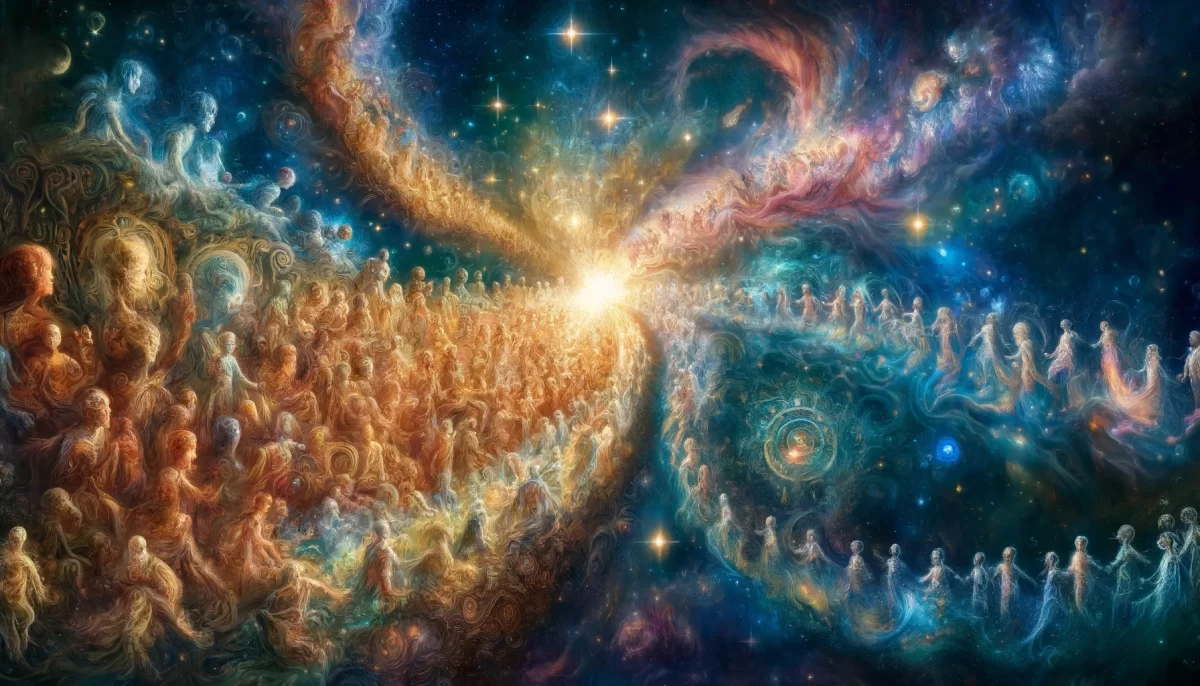
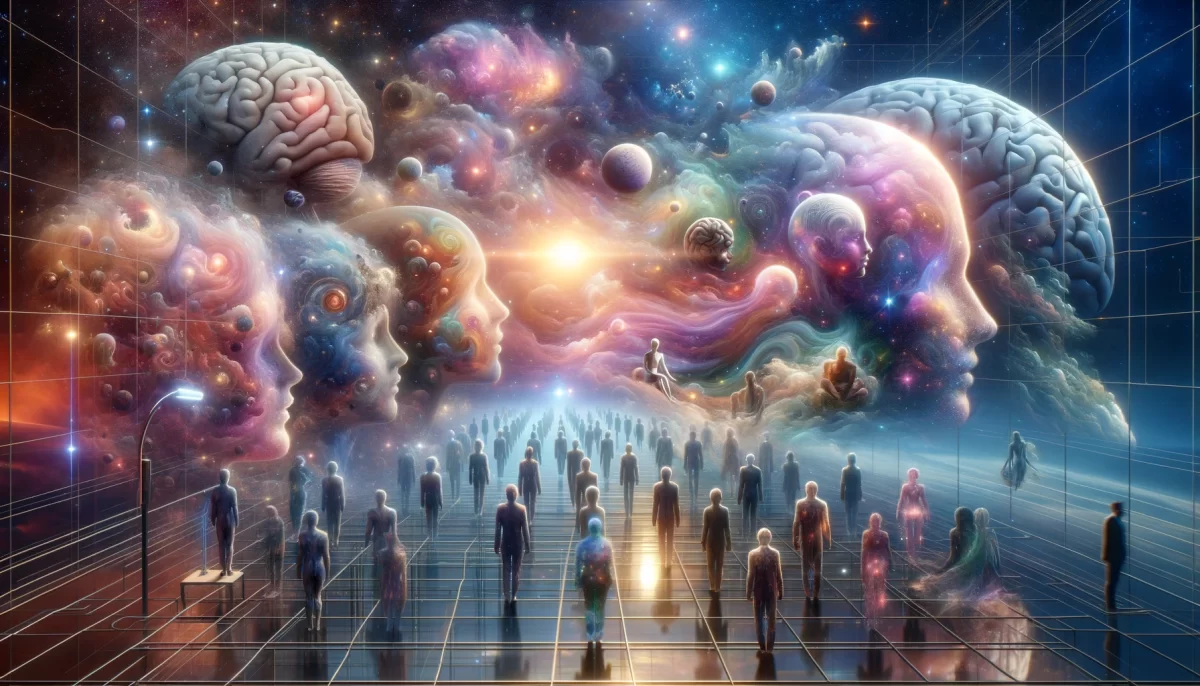
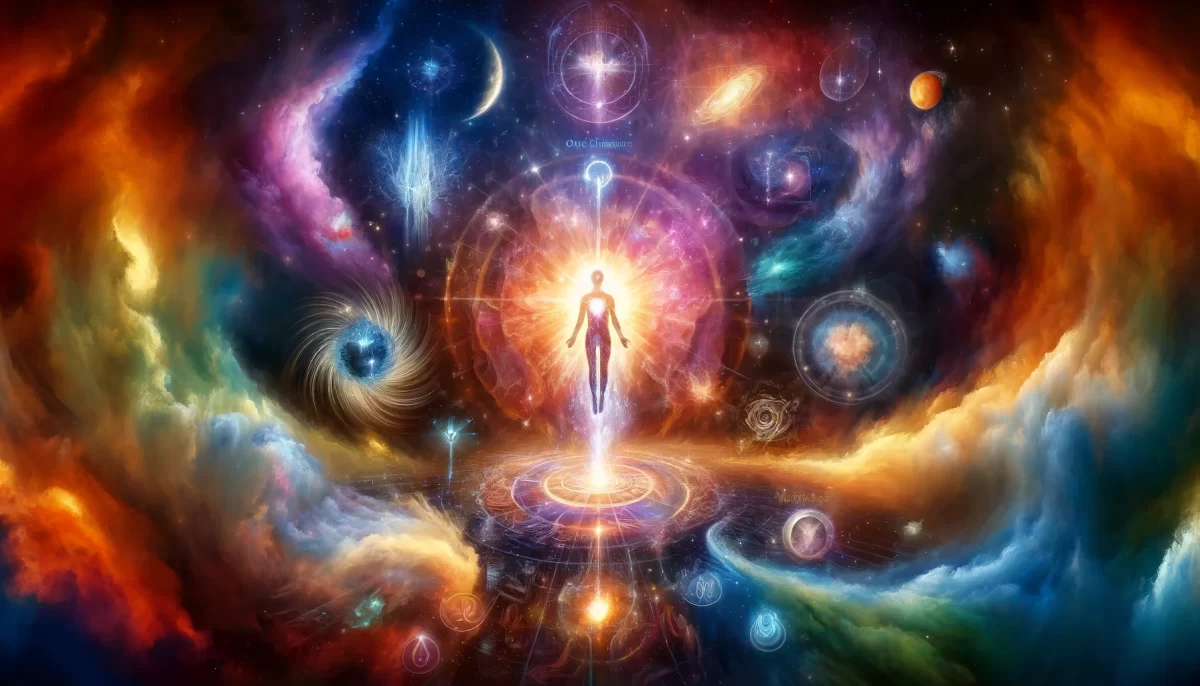
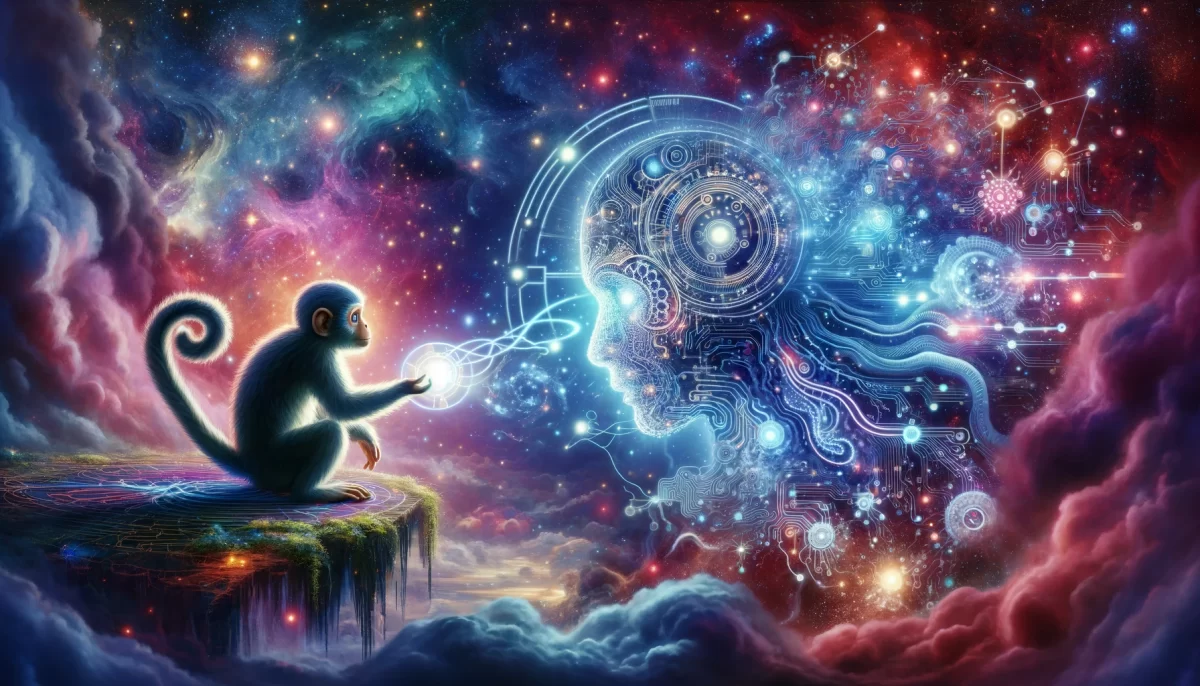
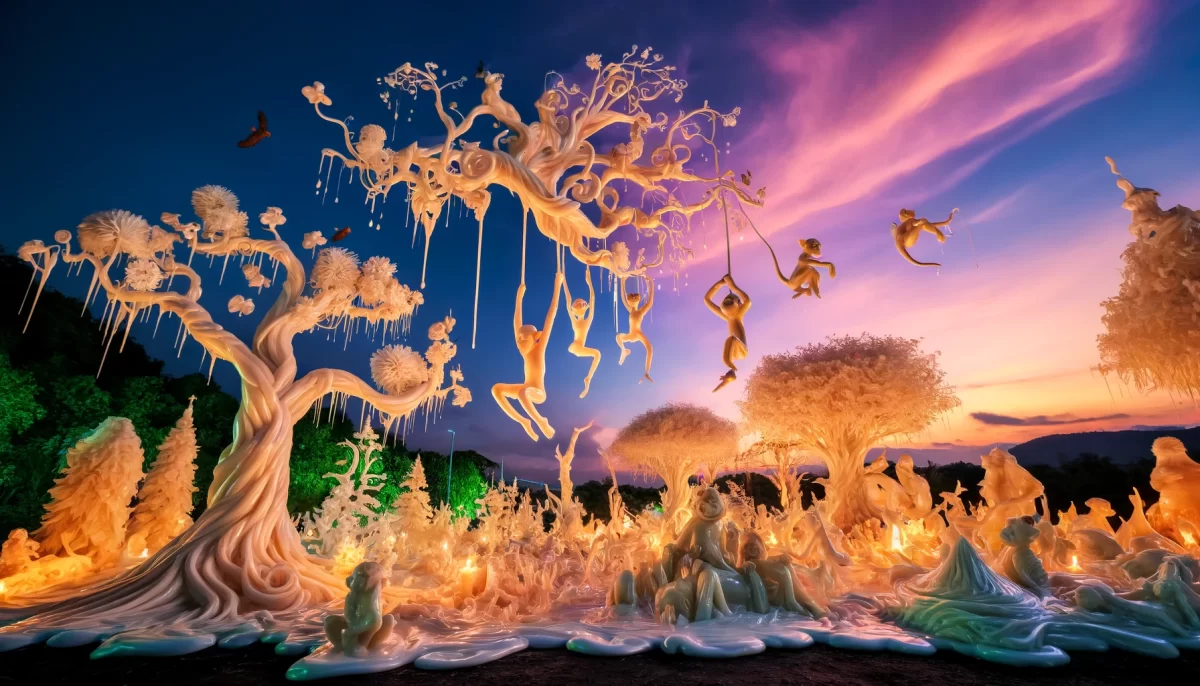
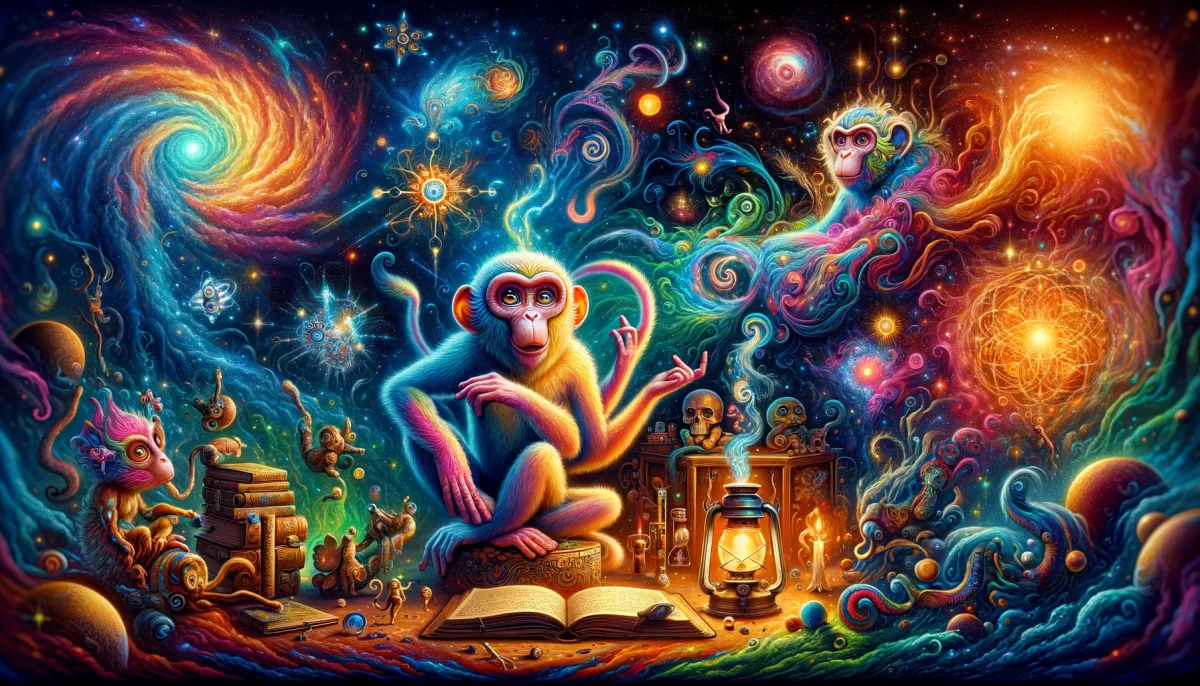
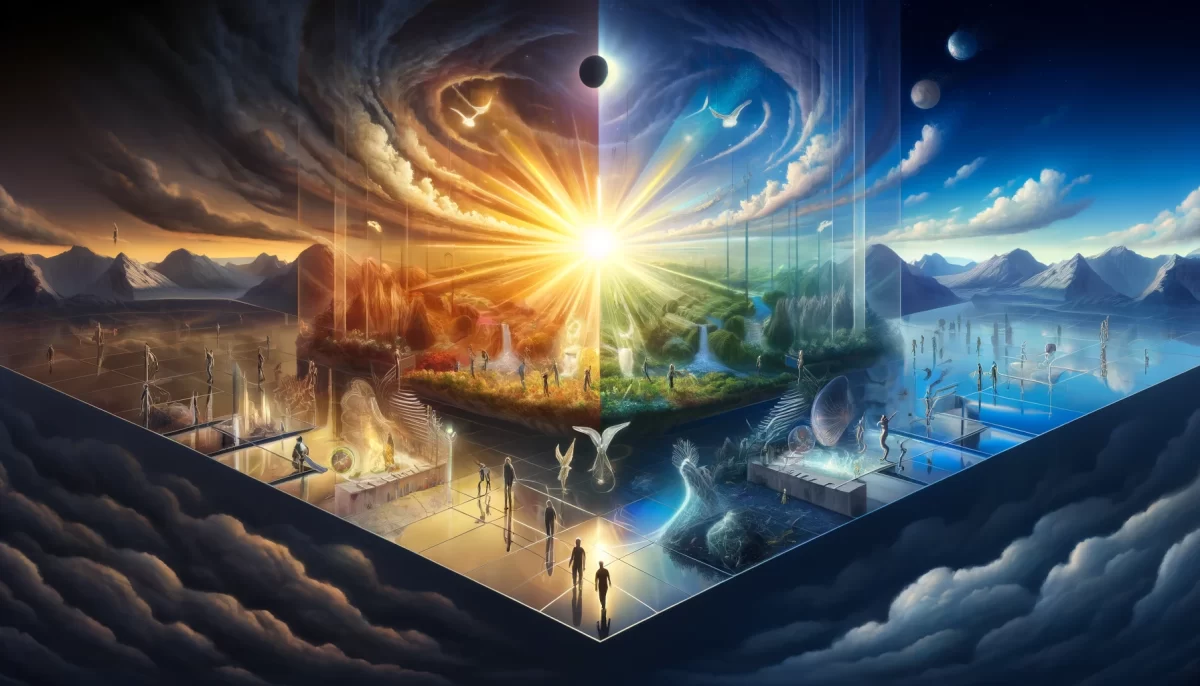

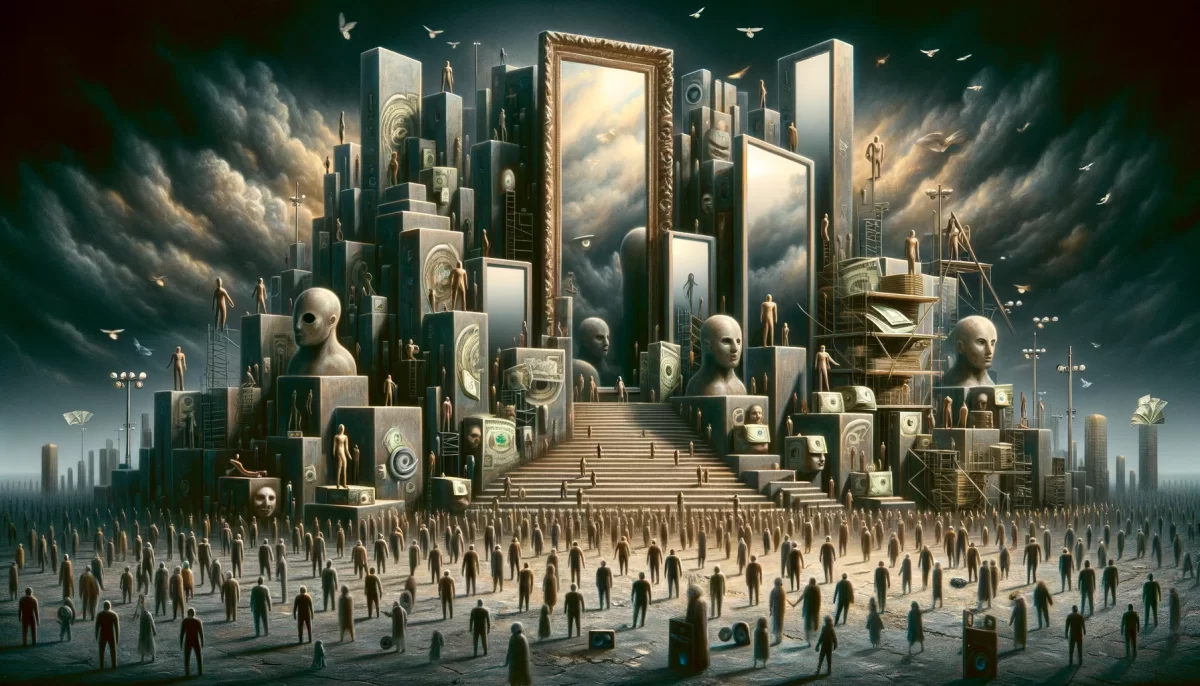

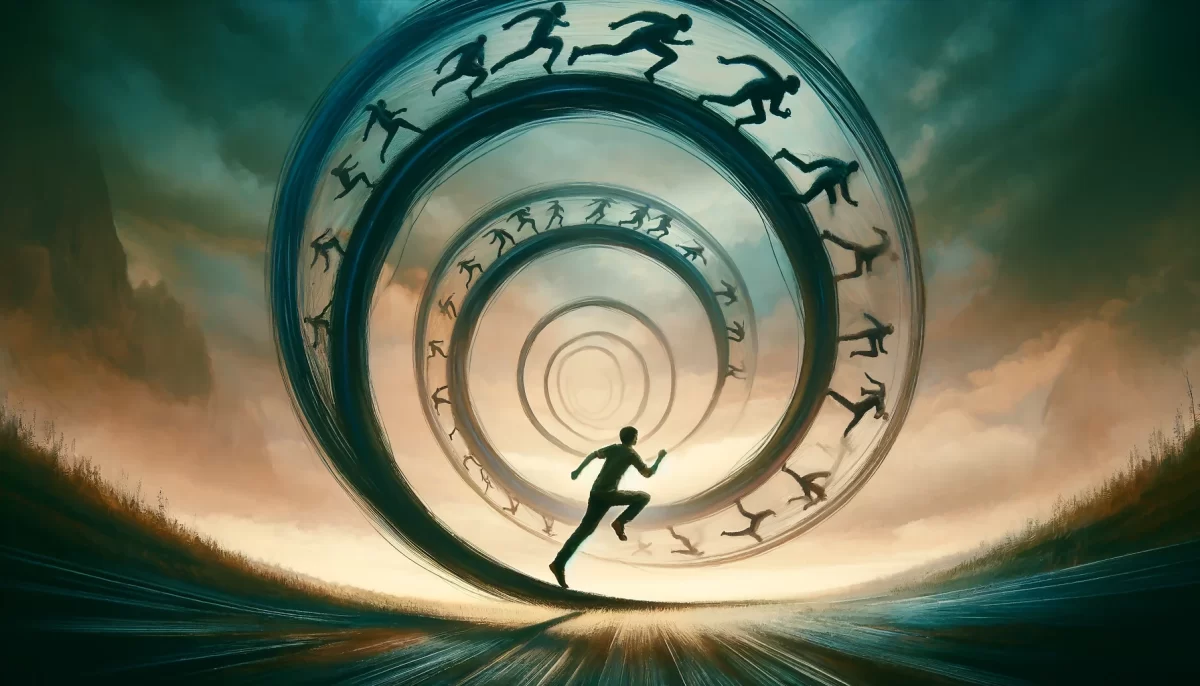
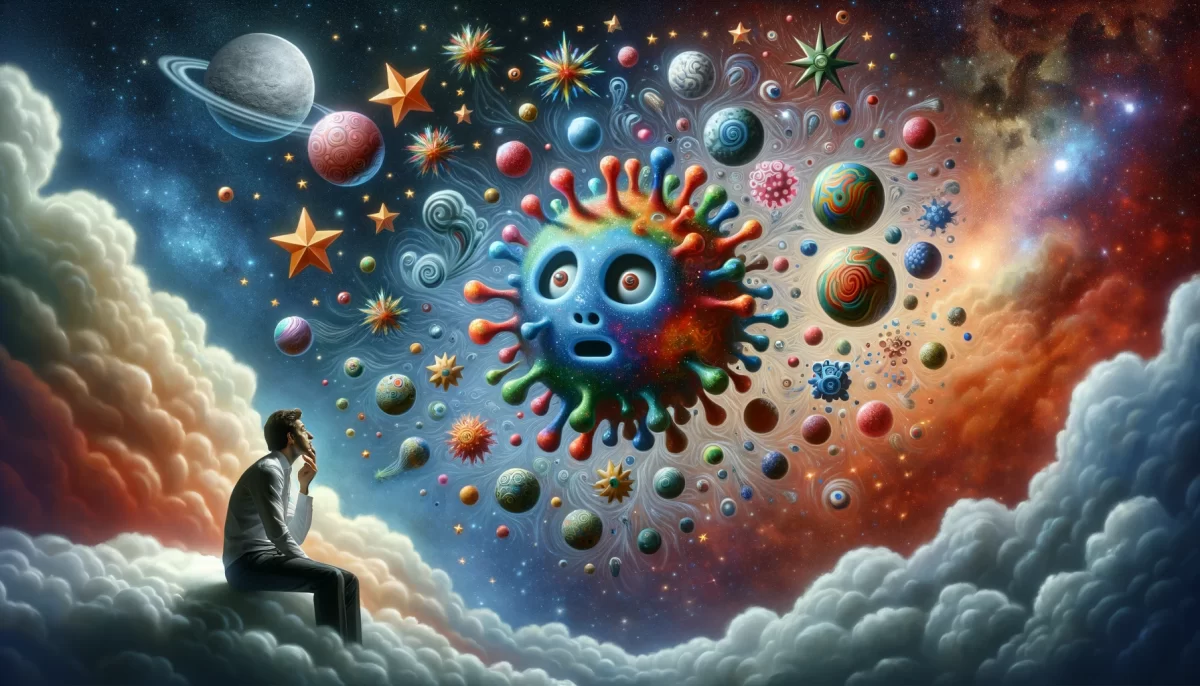



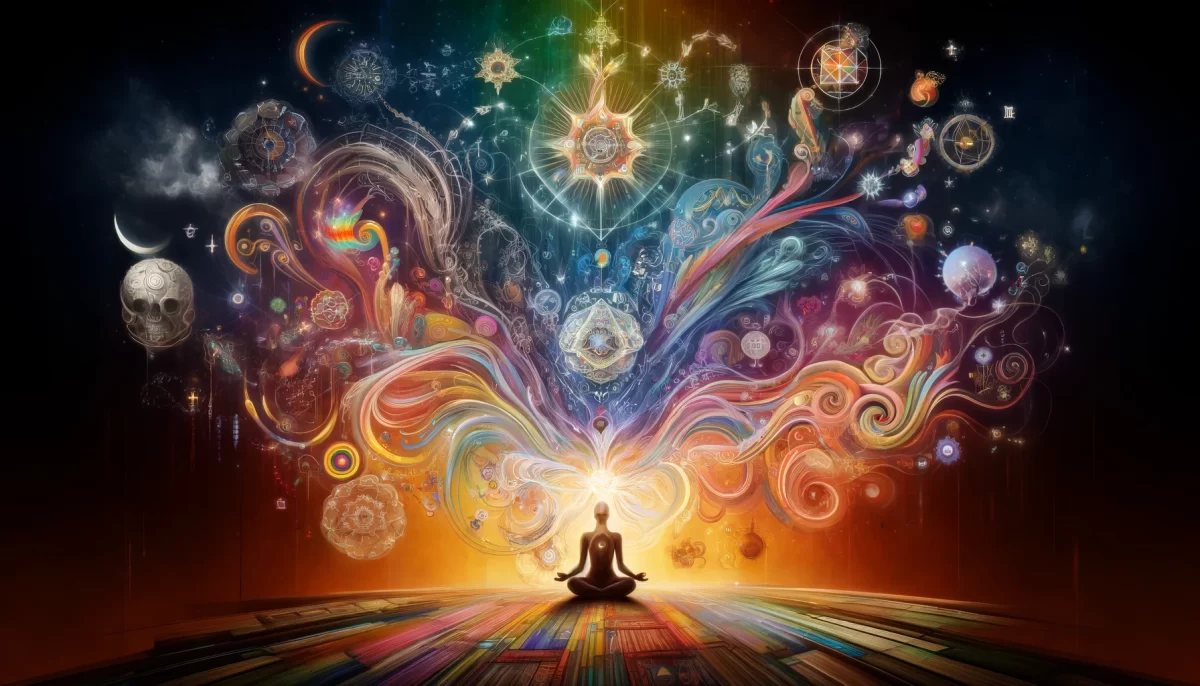
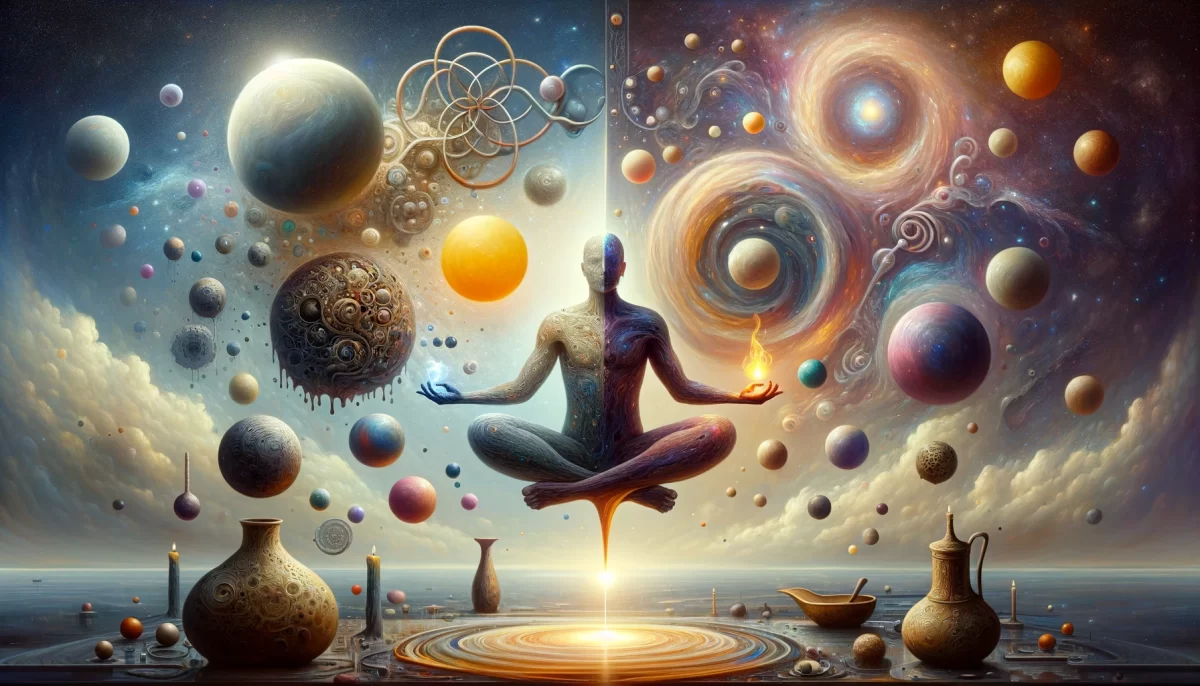

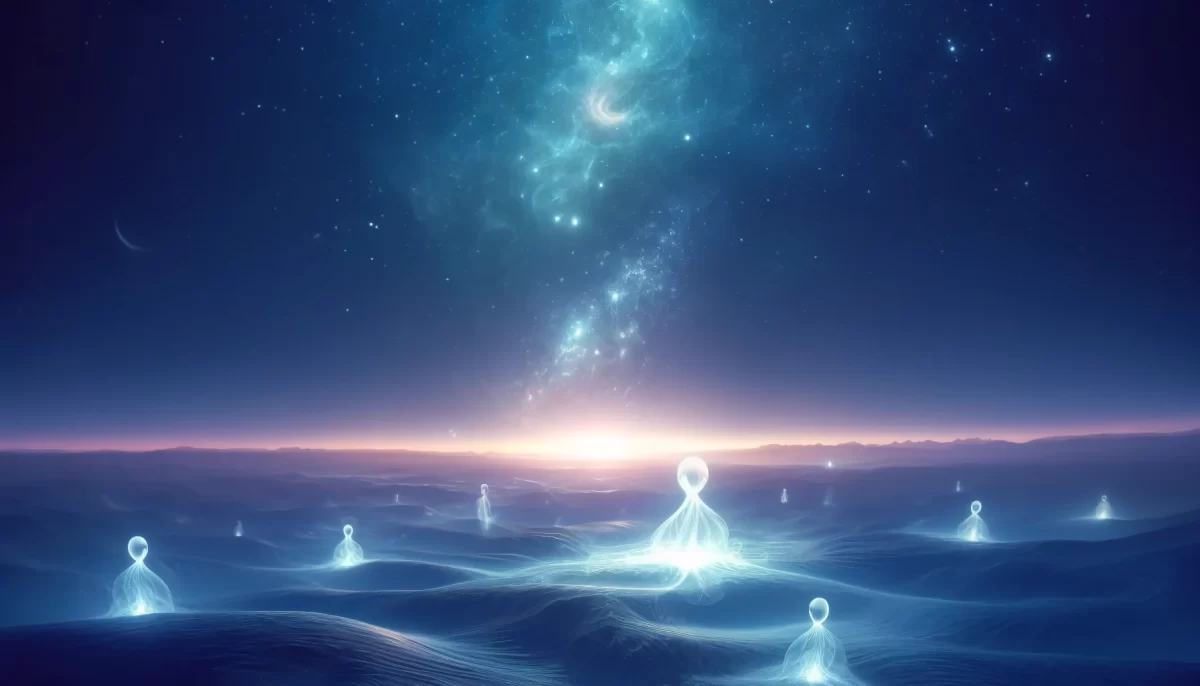
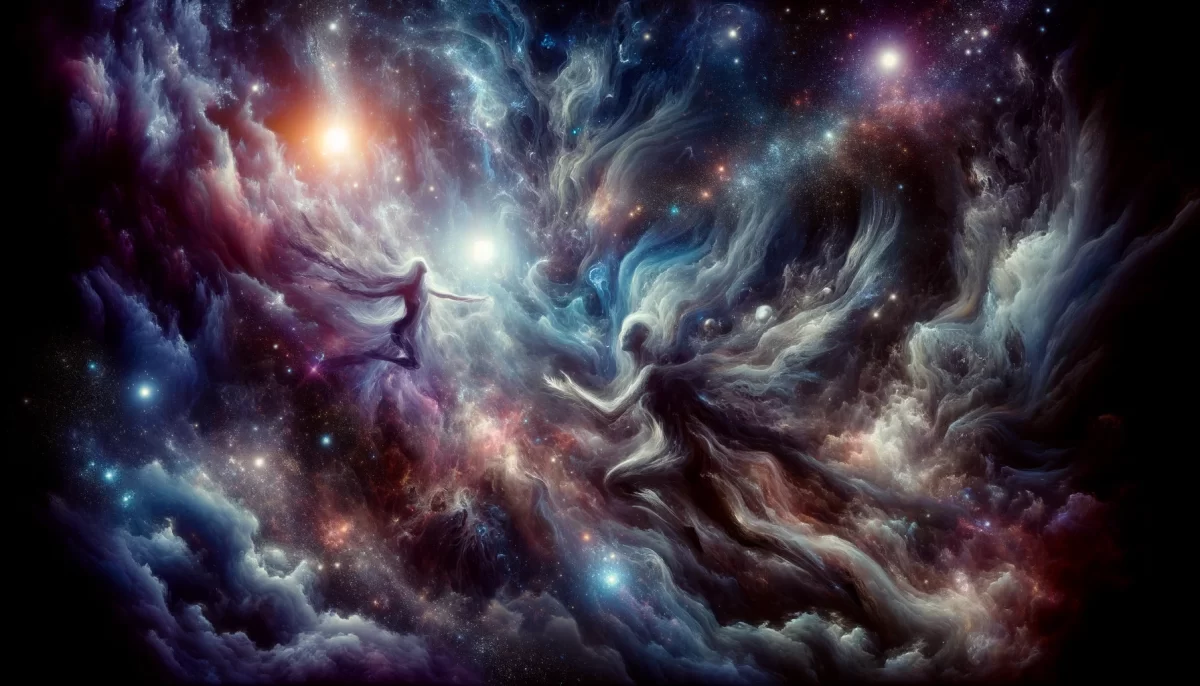



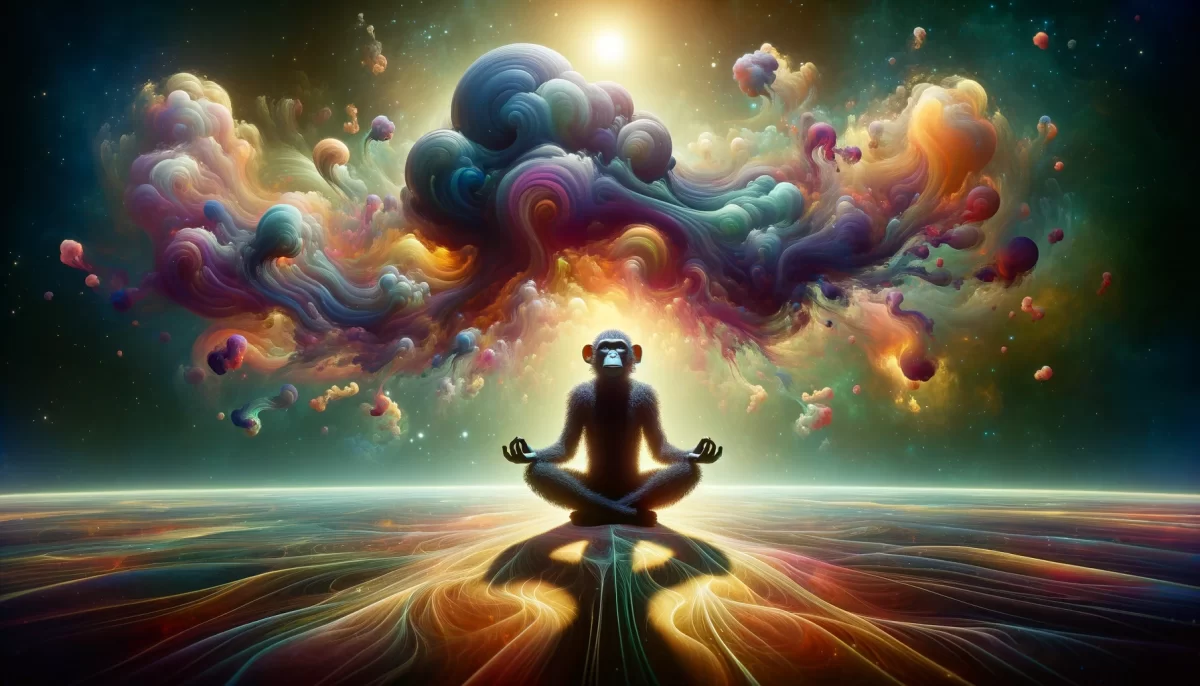
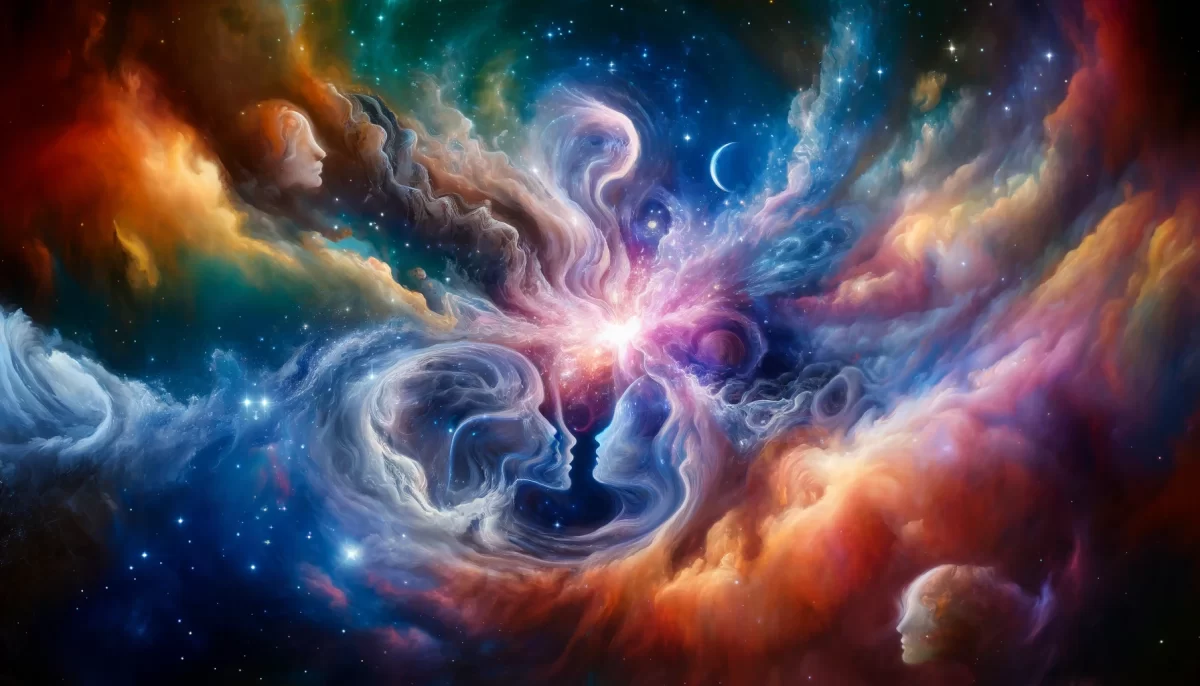
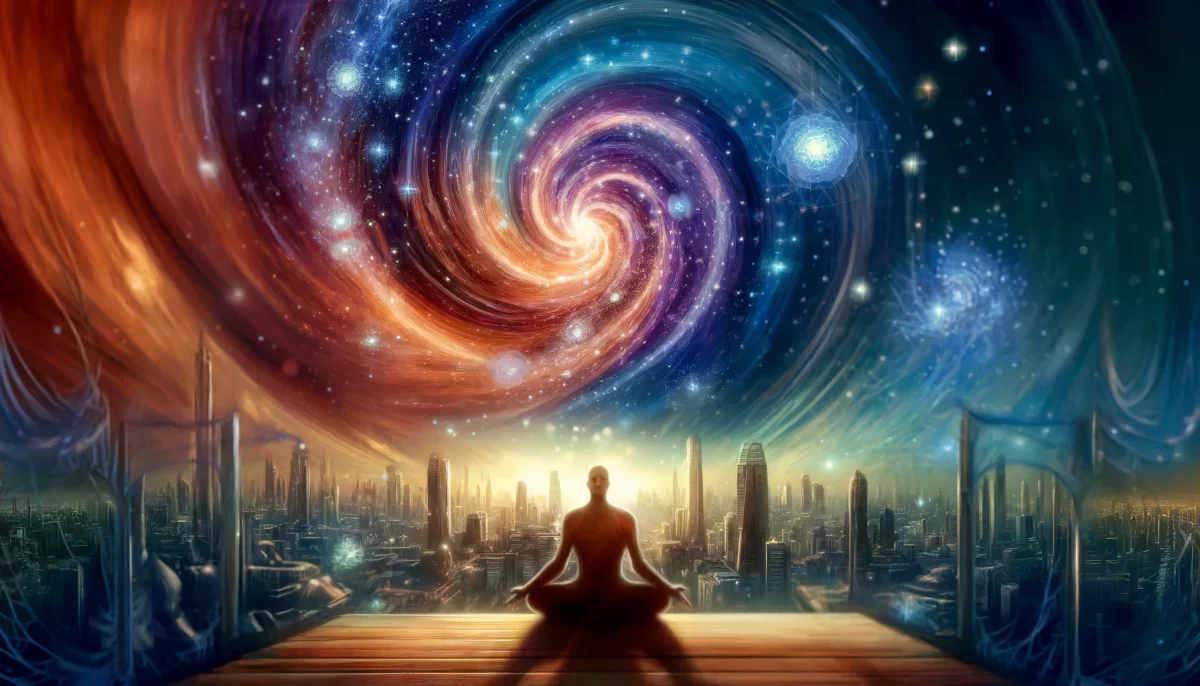
The poem “Inevitability of Change” explores the concept of change and the human tendency to resist or try to control it. It presents change as an imaginary force that drives the world and highlights the futility of opposing or controlling it.
The speaker suggests that the pursuit of controlling change is synonymous with the search for the meaning of life. However, it portrays this search as a struggle, indicating that it is ultimately a fleeting victory in the face of the unstoppable force of change.
The poem questions the belief in personal agency and the ability to control one’s destiny. It implies that such attempts to exert control are rooted in the understanding that eternal life is meaningless and that change is an inherent part of existence.
The poem concludes with a call to accept, allow, and move on in the face of change. It suggests that embracing change rather than resisting it can lead to a more harmonious and fulfilling experience of life.
The identification with Space Monkey at the end of the poem serves as a reminder of the playfulness and adaptability that is inherent within us, emphasizing our connection to the ever-changing nature of the universe.
Overall, the poem invites contemplation on the inevitability of change and challenges the notion of control and resistance. It suggests that accepting and embracing change can lead to a deeper sense of peace and a more fluid experience of life.